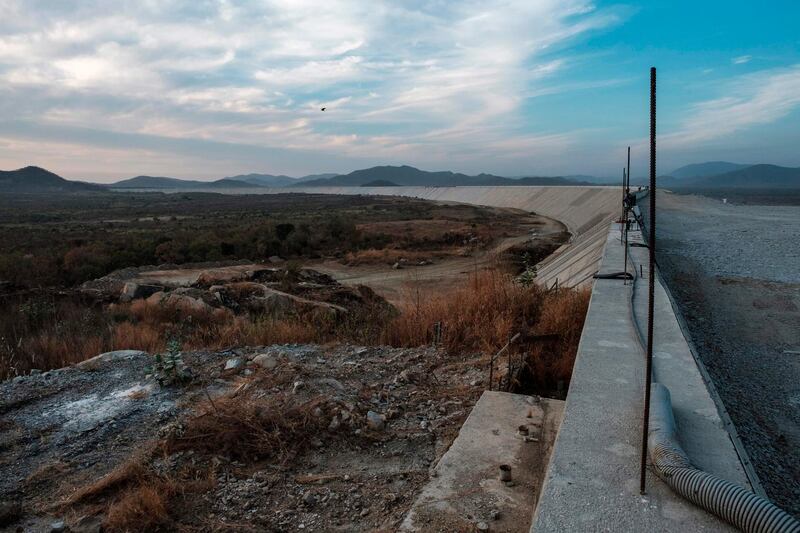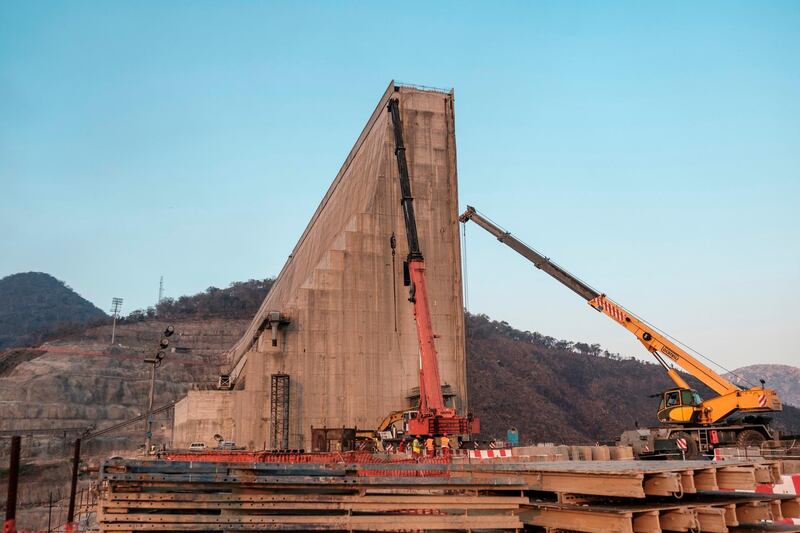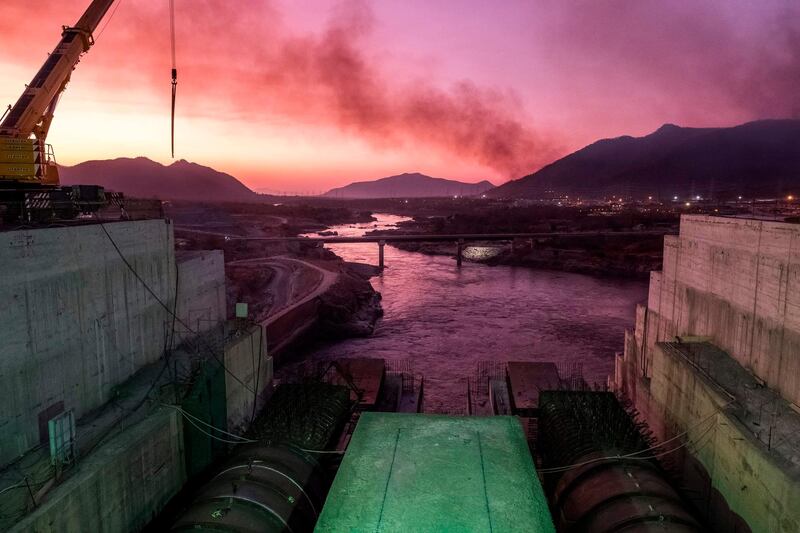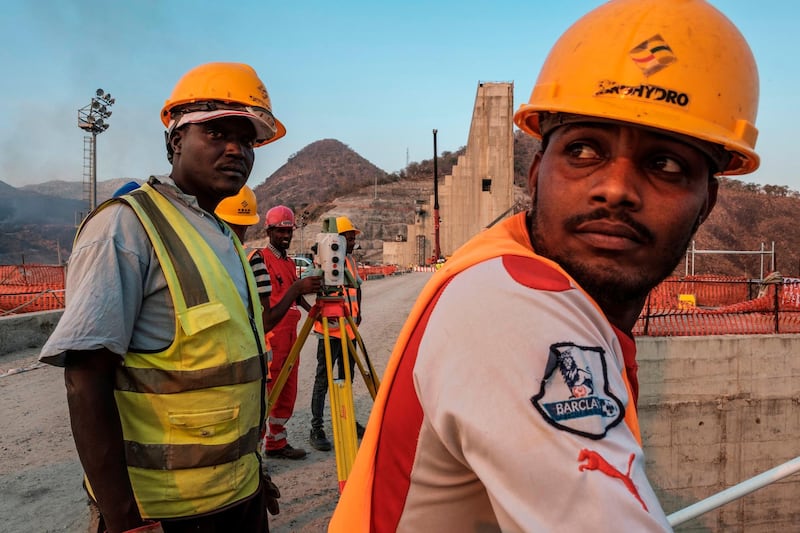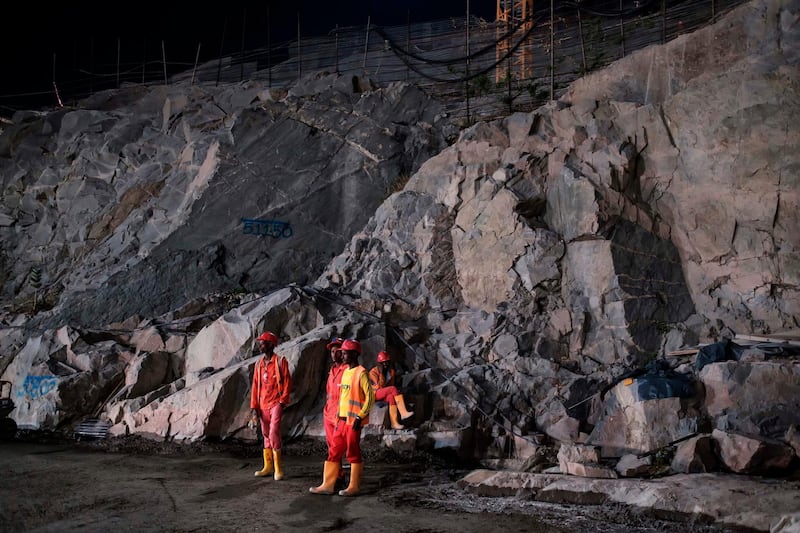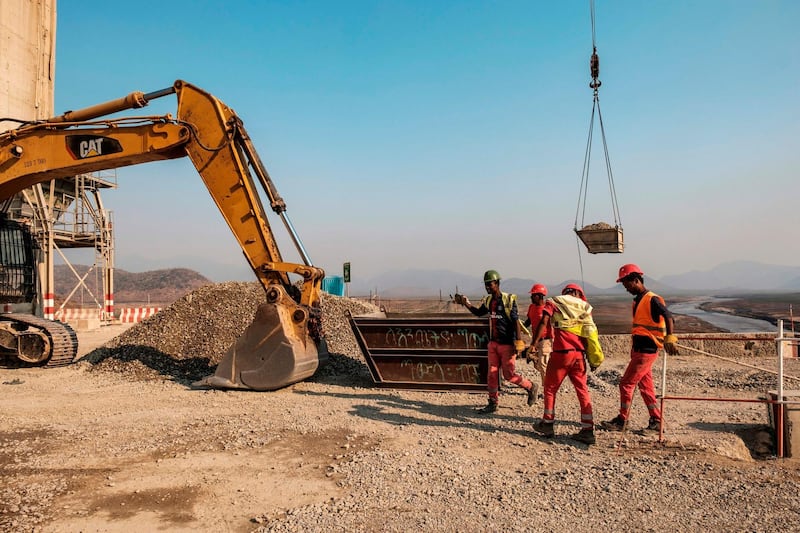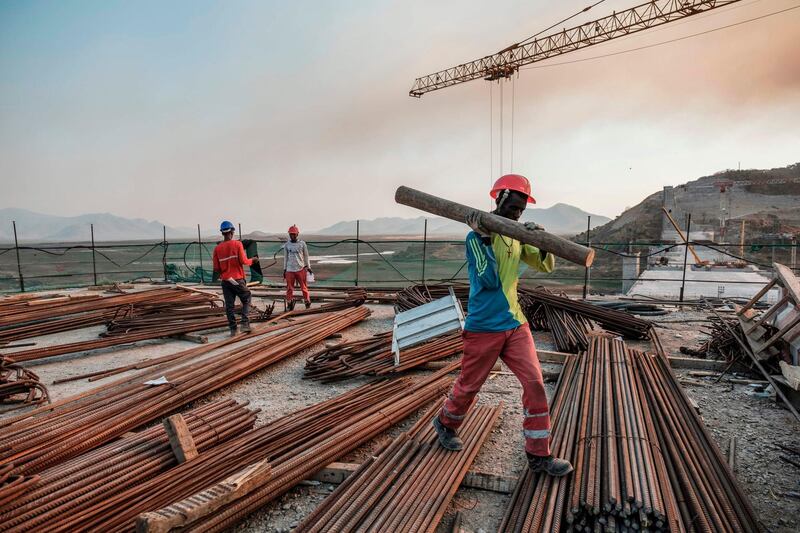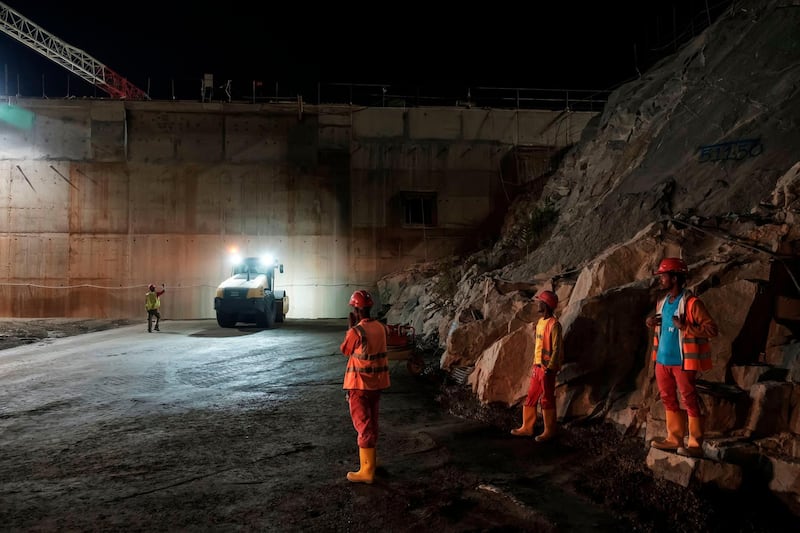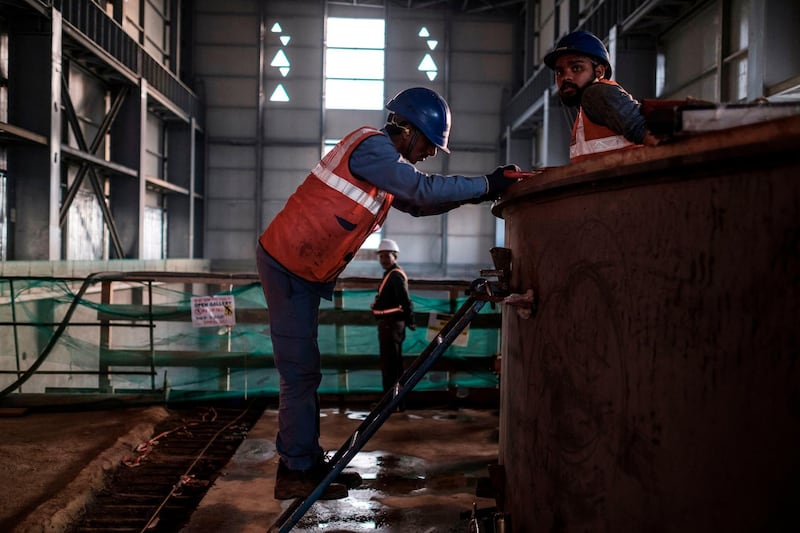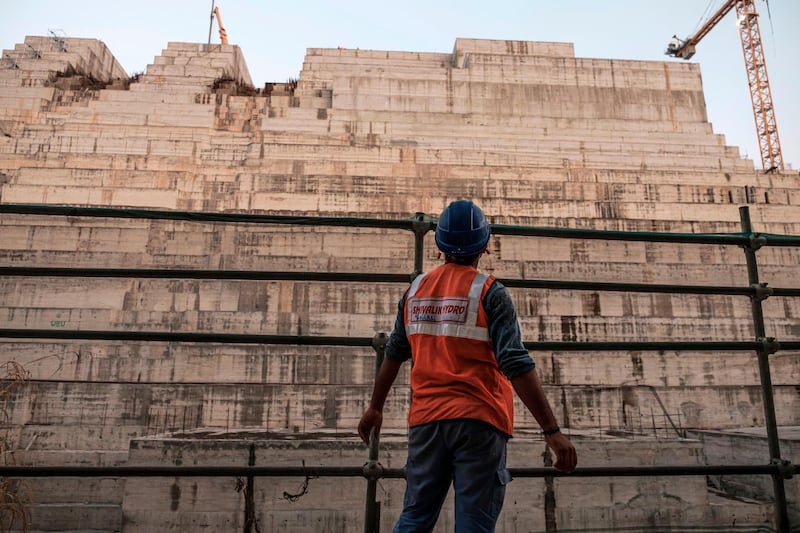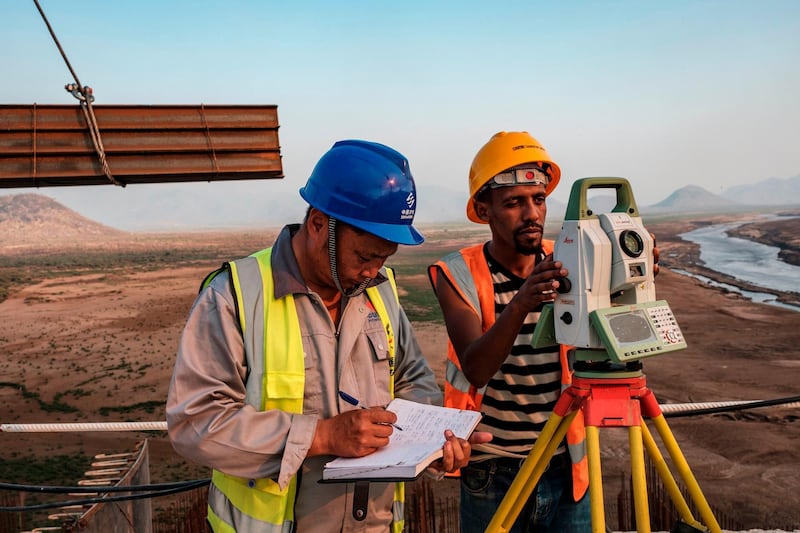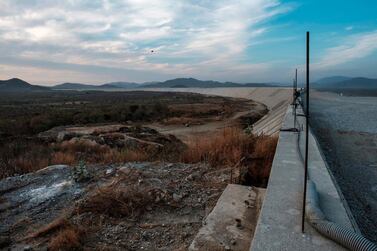Egypt said on Saturday it would use “all means available” to protect the interests of its people, a thinly veiled warning to Ethiopia after the Horn of Africa nation refused to sign an agreement drafted by the US government to regulate the operation of a giant hydroelectric dam it is building on the Nile and the filling of a reservoir behind it.
Egypt, the most populous Arab nation with 100 million people, depends on the Nile for more than 90 per cent of its water needs. It has maintained throughout years of negotiations that while it appreciated the dam’s importance to Ethiopia’s development, it was seeking an agreement that reduced to manageable levels the impact of a reduced share of the river’s water on its economy and food security.
To Addis Ababa, the $4 billion Grand Ethiopian Renaissance Dam has become a symbol of national pride and a centrepiece in its development and ambition to become Africa’s largest power exporter, a feat that would match its growing political and diplomatic leverage in the region.
Egypt initialled the agreement in the latest round of negotiations held in Washington on Thursday and Friday. Ethiopia stayed away from the negotiations after it asked for a delay to allow for more internal consultations on the issue, according to a statement released late on Friday by US Treasury Secretary Steven Mnuchin. The US government, together with the World Bank, has for months been mediating in the Egyptian-Ethiopian dispute, with several rounds of talks held in Washington.
Sudan, which is another downstream country like Egypt but which would not be significantly impacted by the dam, also did not sign the draft.
The statement by Mr Mnuchin, which did not say whether further negotiations were planned, pledged that Washington would continue to work with the three nations until an accord was signed, an upbeat scenario that Egypt on Saturday appeared not to fully share given what Cairo sees as Addis Ababa’s intransigence and time-buying tactics.
“All Egyptian bodies will continue to give the issue the maximum attention it deserves as part of shouldering their national responsibilities to defend with all means available the interests of the Egyptian people, their fate and future,” said a statement by the Egyptian Foreign Ministry on Saturday.
The Egyptian government has publicly refrained from threatening military action to halt the Dam’s construction, but top officials, including President Abdel Fattah El Sisi, have repeatedly referred to the country’s share of the river’s water as an existential issue and warned that Cairo would never accept a status quo imposed by Addis Ababa.
However, some pro-government social media influencers have been urging the government to take military action, arguing that Cairo has already tried and failed to resolve the issue through negotiations.
Egypt, according to the ministry’s statement, has over the last five years “negotiated in good faith and with a genuine political will to reach an agreement that satisfies the interests of all three nations, but the tortuous negotiations did not bear fruit.”
Egypt, it continued, decided to initial the agreement because it felt that it protected its water interests. “Egypt is looking forward to Sudan and Ethiopia to follow suit, accept the agreement and sign it as soon as possible,” it said.
In last month’s round of negotiations in Washington, the three countries agreed on a schedule for a staggered filling of the dam’s reservoir and mitigation mechanisms during dry periods and drought, but said they still needed to finalise details on safety and how to resolve future disputes.
Mr Mnuchin’s statement praised the agreement for addressing “all issues in a balanced and equitable manner” and “provides for the resolution of all outstanding issues on the filling and operation of the Gerd.”
It said Washington appreciated Egypt’s “readiness” to sign the accord and was looking forward to Ethiopia concluding its internal consultations on the issue and signing the agreement as soon as possible.
